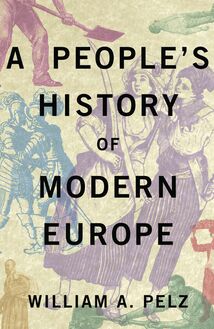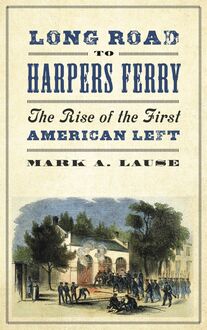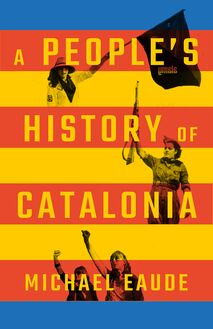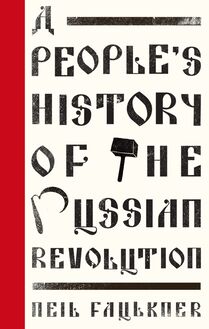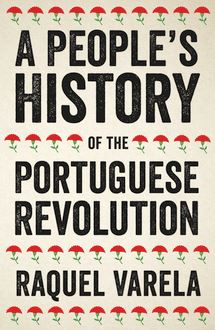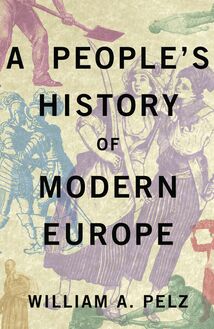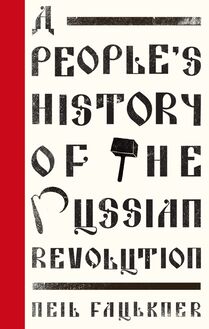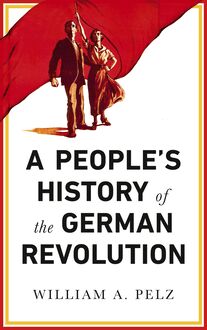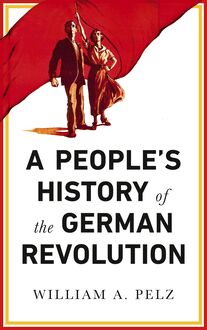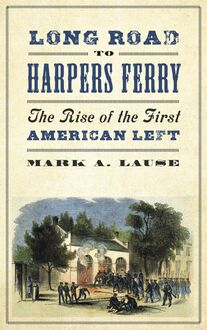-
 Univers
Univers
-
 Ebooks
Ebooks
-
 Livres audio
Livres audio
-
 Presse
Presse
-
 Podcasts
Podcasts
-
 BD
BD
-
 Documents
Documents
-
- Cours
- Révisions
- Ressources pédagogiques
- Sciences de l’éducation
- Manuels scolaires
- Langues
- Travaux de classe
- Annales de BEP
- Etudes supérieures
- Maternelle et primaire
- Fiches de lecture
- Orientation scolaire
- Méthodologie
- Corrigés de devoir
- Annales d’examens et concours
- Annales du bac
- Annales du brevet
- Rapports de stage
La lecture à portée de main
Vous pourrez modifier la taille du texte de cet ouvrage
Découvre YouScribe en t'inscrivant gratuitement
Je m'inscrisA People's History of the Portuguese Revolution , livre ebook
Pluto Press
-
Raquel Varela
traduit par
Sean Purdy
Découvre YouScribe en t'inscrivant gratuitement
Je m'inscrisEn savoir plus
Vous pourrez modifier la taille du texte de cet ouvrage
En savoir plus

Description
This became the Carnation Revolution - an international coalition of working class and social movements, which also incited struggles for independence in Portugal’s African colonies, the rebellion of the young military captains in the national armed forces and the uprising of Portugal’s long-oppressed working classes. It was through the organising power of these diverse movements that a popular-front government was instituted and Portugal withdrew from its overseas colonies.
Cutting against the grain of mainstream accounts, Raquel Cardeira Varela explores the role of trade unions, artists and women in the revolution, providing a rich account of the challenges faced and the victories gained through revolutionary means.
Photographs, Figures and Tables
Acknowledgements
Editor’s note on the English edition
Abbreviations
1. Introduction
2. The Seeds of Change
3. 25 April 1974: ‘The People are No Longer Afraid’
4. Who Governs?
5. The Anti-Colonial Movements and the Myth of a ‘Bloodless Revolution’
6. Strikes and their Reverberations
7. Self-Management and the Struggle Against Redundancies
8. Women in a Democracy are Not Mere Decoration: Social Reproduction and Private Life in the Revolution
9. Artists and the Revolution
10. Workers’ Commissions and Unions
11. ‘Here is the Nursery’ – Urban Struggles and Residents’ Commissions
12. Workers’ Control, 11 March and Nationalisations
13. The Birth of the Welfare State
14. Scheming for Power
15. The Land for its Workers: Agrarian Reform
16. The ‘Hot Summer’ of 1975 and the Fifth Government’s Frail Governance
17. Spain and other ‘Links in the Chain’
18. The Crisis
19. Democracy and Revolution: The Meaning of the Carnation Revolution
20. In Celebration
Chronology
Notes
Bibliography
Index
About the author
Sujets
20th Century
Modern
HISTORY
POLITICAL SCIENCE
Histoire
Revolutions
Porto (desambiguación)
Guarda Nacional Republicana
República
Coup d'état
Rádio Renascença
Revolutionary
Post-war
Republican National Guard (Portugal)
Vasco Gonçalves
Modern history
Portuguese Communist Party
Portuguese Empire
General officer
Revolution
Imperialism
History of Europe
Mozambique
Impérialisme (jeu vidéo)
General
Lisbon
Coup
Radio Renascença
António de Oliveira Salazar
PPD
Otelo Saraiva de Carvalho
Vasco dos Santos Gonçalves
Obermodern-Zutzendorf
Porto
Portugal
Europe
Informations
| Publié par | Pluto Press |
| Date de parution | 20 février 2019 |
| Nombre de lectures | 0 |
| EAN13 | 9781786803580 |
| Langue | Português |
| Poids de l'ouvrage | 1 Mo |
Informations légales : prix de location à la page 0,0748€. Cette information est donnée uniquement à titre indicatif conformément à la législation en vigueur.
Extrait
A People s History of the Portuguese Revolution
People s History
History tends to be viewed from the perspective of the rich and powerful, where the actions of small numbers are seen to dictate the course of world affairs. But this perspective conceals the role of ordinary women and men, as individuals or as parts of collective organisations, in shaping the course of history. The People s History series puts ordinary people and mass movements centre stage and looks at the great moments of the past from the bottom up.
The People s History series was founded and edited by William A. Pelz (1951-2017).
Also available:
Long Road to Harpers Ferry The Rise of the First American Left Mark A. Lause
A People s History of the German Revolution, 1918-19 William A. Pelz Foreword by Mario Kessler
A People s History of the Portuguese Revolution
Raquel Varela
Edited by Peter Robinson Translated by Sean Purdy
First published by Bertrand Editora as Hist ria do Povo na Revolu o Portuguesa 1974-75
English language edition first published 2019 by Pluto Press
345 Archway Road, London N6 5AA
www.plutobooks.com
Copyright Bertrand Editora and Raquel Varela 2019
The right of Raquel Varela to be identified as the author of this work has been asserted by her in accordance with the Copyright, Designs and Patents Act 1988.
British Library Cataloguing in Publication Data
A catalogue record for this book is available from the British Library
ISBN 978 0 7453 3858 3 Hardback
ISBN 978 0 7453 3857 6 Paperback
ISBN 978 1 7868 0357 3 PDF eBook
ISBN 978 1 7868 0359 7 Kindle eBook
ISBN 978 1 7868 0358 0 EPUB eBook
This book is printed on paper suitable for recycling and made from fully managed and sustained forest sources. Logging, pulping and manufacturing processes are expected to conform to the environmental standards of the country of origin.
Typeset by Stanford DTP Services, Northampton, England
Simultaneously printed in the United Kingdom and United States of America
I dedicate this book to the historian Val rio Arcary from whom I learned the centrality of theory in the history of revolutions. I also learned from him not to be afraid when the empirical evidence forces us to start over again. His intellectual courage is an example for me.
I also want to dedicate this book to Peter Robinson, who did an extraordinary editing job, adding various notes, ideas and texts from his pen that made the book much better. His gentleness and passion for the revolution that helped build 44 years ago is still evident today.
Finally, I want to thank William Pelz (1951-2017), who introduced me to Pluto Press. Born in a working-class district on the south side of Chicago, Bill liked to refer in his biography to his initial hope of pursuing a career as a bus driver, explaining that he later lowered his expectations and became an academic historian instead. Bill never got to drive buses, but was a brilliant historian and author of important works dedicated to the study of the working class.
Contents
Photographs, Figures and Tables
Acknowledgements
Editor s note on the English edition
Abbreviations
1. Introduction
2. The Seeds of Change
3. 25 April 1974: The People are No Longer Afraid
4. Who Governs?
5. The Anti-Colonial Movements and the Myth of a Bloodless Revolution
6. Strikes and their Reverberations
7. Self-Management and the Struggle Against Redundancies
8. Women in a Democracy are Not Mere Decoration: Social Reproduction and Private Life in the Revolution
9. Artists and the Revolution
10. Workers Commissions and Unions
11. Here is the Nursery - Urban Struggles and Residents Commissions
12. Workers Control, 11 March and Nationalisations
13. The Birth of the Welfare State
14. Scheming for Power
15. The Land for its Workers: Agrarian Reform
16. The Hot Summer of 1975 and the Fifth Government s Frail Governance
17. Spain and other Links in the Chain
18. The Crisis
19. Democracy and Revolution: The Meaning of the Carnation Revolution
20. In Celebration
Chronology
Notes
Bibliography
Index
About the author
Photographs, Figures and Tables
Photographs
1 The community of an occupied farm holds a meeting to decide how the work of picking the olives should be shared out
2 Workers and Soldiers Demonstration, 16 July 1975. Armed soldiers (and tanks) support a demonstration in Lisbon called by Inter-Commissions (federation of shanty town neighbourhood committees)
3 To fight against their bosses lock-out, the dry-cleaning workers at Tinturaria Portugal decided, at a plenary meeting on 18 November 1974, to continue occupying their workplace
4 Funeral procession of Soldier Lu s, killed during the attempted coup of 11 March 1975
5 Agricultural workers from the farm Os Machados outside the Ministry of Agriculture in Lisbon
6 Workers in Rep blica , who had taken over their newspaper
7 Special English solidarity issue of Rep blica , published under workers control
8 Published by the cultural dynamisation wing of the MFA, this children s comic book explains why people should not vote
9 People s United Front (FUP) demonstration, 27 August 1975
10 Examples of stickers produced by worker, grassroots and revolutionary organisations in order to publicise their causes
11 Portuguese soldiers reading Socialist Worker , the paper of the International Socialists (UK)
12 November 1975, left-wing paras weep with disappointment as they surrender to the commandos, the men who made the coup for the right-wing
Figures
4.1 Social Struggles Surged Following the Events of 25 April 1974
4.2 Strikes during the 1974-1975 Revolution
5.1 Anti-colonial demonstration leaflet
7.1 Workplace occupations and self-management
12.1 Evolution of Workers Control in the Carnation Revolution
13.1 Benefits as a Percentage of the GNP
17.1 A difficult problem , 1975. By Jo o Abel Manta.
18.1 SUV leaflet
Tables
2.1 Mozambique: Salaries in 1969
4.1 Strikes in Portugal between 25 April and 1 June 1974
4.2 Political Purges in the Revolution (private and public sectors)
6.1 The Growth of the Intersindical (1970-1975)
10.1 Number of Workers Commissions in Portugal
10.2 The Communist Party, the Workers Commissions and the Intersindical
11.1 Rental Market in Set bal 1970-1975
12.1 Illustration of the workers control debate in the major companies
13.1 Social Security Benefits: Total Outlay
15.1 Movement of Land Occupations in the Fields of the South in 1975
Acknowledgements
This book would not have been possible in the first place without the aid of Alejandro Lora, my Erasmus student, who did an exhaustive, months-long search of social conflicts in the Portuguese Revolution. The researcher Joana Alc ntara systematised this collection in a detailed project that listed the strikes, demonstrations, workers and social movements during the 19 months of the Portuguese Revolution. I want to thank all those colleagues who have aided me with articles, references, data and, sometimes, criticism. Essential, in particular, but not in any special order were: Miguel P rez, Jorge Fontes, Marcelo Badar Mattos, Alberto Carrillo-Linares, Encarnaci n Lemus, ngeles Gonz lez, Marcel van der Linden, Felipe Abranches Demier, Renato Guedes, Ana Rajado, Carlos Pratas, Sara Granemann, Cleusa Santos, Antonio Lou , Riv nia Moura, Jos Babiano, Rui Bebiano, Nat rcia Coimbra and Giulia Strippoli.
I would also like to thank the precious help of those interviewed for my research whose names are mentioned throughout the book. I appreciated the accessibility of the following institutions: the Hemeroteca Municipal de Lisboa, the Arquivo R dio e Televis o de Portugal (RTP), the historical archives of the CCOO (Funda o 1 de Mayo, Madrid), the archives of the Centro de Documenta o 25 de April, the archives of the Centro de Interven o para o Desenvolvimento Am lcar Cabral and the International Archive of Social History (Amsterdam).
Travel expenses to access files were supported by the projects Transici n La Ib rica. Portugal y Espa a. El Inter s International por la Liberalizaci n Peninsular (1968-1978) (HAR2011-27 460) and History of Industrial Relations in Portugal and the Lusophone World (PTDC// EPH-HIS/3701/2012).
Special thanks to my outstanding editors, Eduardo Boavida and Jo o Santos, as well as the whole team at Bertrand. Finally, thanks to the Instituto de Hist ria Contempor nea, Faculdade de Ci ncias Sociais e Humanas, Universidade Nova de Lisboa and the International Institute of Social History where I conducted all my research. Thank you for the dedication and commitment of the entire Pluto team.
I also wish to thank my family and Guida Jorge who lovingly helped take care of Manuel and David allowing them to earn even more affection and education than was available from their sometimes-absent mother.
Editor s note on the English edition
Note by the English editor, Peter Robinson. As we cannot take it for granted that the English-speaking reader will be familiar with aspects that people in Portugal know about, more background information has been spliced in, for example relating to the geography and history. Some phrases and sentences have been drawn directly from a little booklet I wrote, called Portugal 1974-75 The Forgotten Dream . I wrote the section on the links with Britain and the International Left in Chapter 17 .
I was in Portugal for some of the time as a political organiser for the British International Socialists and subsequently interviewed and wrote about these amazing events. I completed a M Phil thesis in 1999, called Workers Councils in Portugal 1974-1975 , and it took me ten years because life got in the way. I studied in depth, four studies of embryonic workers councils. They were:
the Inter-Empresas (May 74-March 75)
the Revolutionary Councils of Workers, Soldiers and Sailors (CRTSMs) (April 75-June 75)
the Popular Assemblies (July 75-November 75)
the Setubal comm
-
 Univers
Univers
-
 Ebooks
Ebooks
-
 Livres audio
Livres audio
-
 Presse
Presse
-
 Podcasts
Podcasts
-
 BD
BD
-
 Documents
Documents
-
Jeunesse
-
Littérature
-
Ressources professionnelles
-
Santé et bien-être
-
Savoirs
-
Education
-
Loisirs et hobbies
-
Art, musique et cinéma
-
Actualité et débat de société
-
Jeunesse
-
Littérature
-
Ressources professionnelles
-
Santé et bien-être
-
Savoirs
-
Education
-
Loisirs et hobbies
-
Art, musique et cinéma
-
Actualité et débat de société
-
Actualités
-
Lifestyle
-
Presse jeunesse
-
Presse professionnelle
-
Pratique
-
Presse sportive
-
Presse internationale
-
Culture & Médias
-
Action et Aventures
-
Science-fiction et Fantasy
-
Société
-
Jeunesse
-
Littérature
-
Ressources professionnelles
-
Santé et bien-être
-
Savoirs
-
Education
-
Loisirs et hobbies
-
Art, musique et cinéma
-
Actualité et débat de société
- Cours
- Révisions
- Ressources pédagogiques
- Sciences de l’éducation
- Manuels scolaires
- Langues
- Travaux de classe
- Annales de BEP
- Etudes supérieures
- Maternelle et primaire
- Fiches de lecture
- Orientation scolaire
- Méthodologie
- Corrigés de devoir
- Annales d’examens et concours
- Annales du bac
- Annales du brevet
- Rapports de stage

